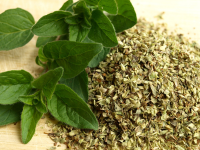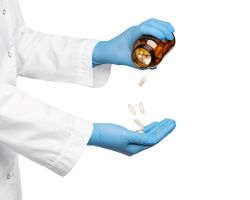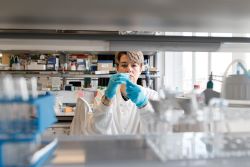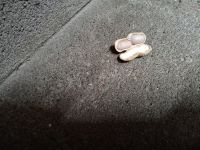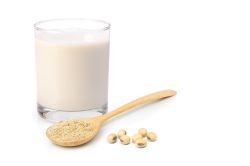
J. David Legan, PhD
Director of Science
David earned his Ph.D. in Food Technology from the University of Reading in the UK by modeling the ecology of mixed microbial populations, and then moved to Campden BRI in a variety of microbiological food safety research and client service roles. During that time, he was project lead for the Bacillus component of the UK’s pathogen modeling program. He moved again to Nabisco Research in New Jersey where he ran the corporate microbiology lab and developed a program of preservation technology development and microbial modeling. After the Kraft Foods acquisition, he moved to Chicago to work on Food Safety and Preservation research, and through modeling and validation studies:
- Optimized Oscar Mayer’s use of lactate and diacetate and their naturally cultured alternatives as Listeria-control agents in Ready to Eat meats
- Specified process conditions central to Oscar Mayer’s commercial launch of High Pressure Pasteurization of naturally cured RTE meats
David had responsibility for the Kraft cultures R&D group, developed a partnership to explore microwave sterilization leading to several patents, and led a program that developed an internal proprietary natural antimicrobial commercialized in several Kraft products. Technologies from his group supported approximately $4 billion in annual sales.
After years as a microbiology "client", he is now back in the "provider" role as Director of Science at Eurofins Microbiology Laboratories, Inc., by way of the Covance Food Solutions group based in Madison, WI, which he joined in 2016. In this role, he ensures appropriate method validation, explores new testing technologies, and fields multiple complicated food microbiology questions.
Products that his team has evaluated or developed and launched include:
- The 3M MDS platform in the Madison microbiology laboratory
- Flow cytometry for enumeration of probiotics
- Strain-level confirmation of probiotic identification using the polymerase chain reaction (PCR)
- Next-generation sequencing using the Oxford Nanopore Technologies GridION sequencing platform for microbial identification and microbiome analysis
Below are resources from David:
A supplement manufacturer added methylcobalamin (Vitamin B12) to a product, expecting to meet label claims. However, testing revealed only ~50% of the claimed amount, triggering an out-of-spec (OOS) result. Read to learn how Eurofins Supplement Testing resolved the unexpected results.
A client submitted a batch of Turmeric Powder (Curcuma longa rhizome) for routine identity and quality verification. The samples were were expected to match the fingerprint of authentic turmeric reference materials. Learn how Eurofins detected detected adulteration in the client's submitted sample.
After months of fine-tuning flavor, texture, and active ingredients, a new nutritional formula was ready for scale-up. This case study explores the successful transition from lab-scale to full-scale production—preserving product integrity across thousands of gallons.
As a widely used culinary and medicinal herb, oregano is expected to meet strict botanical specifications. Read our case study to learn how Eurofins analysts used HPTLC and microscopy to uncover botanical adulteration in an oregano sample submitted for identity verification and quality assessment.
Explore a real-world OOS case study where collaborative investigation revealed formulation challenges as the root cause. Learn how targeted troubleshooting helped a client improve product consistency and manufacturing protocols.
Learn how a lab resolved inconsistent OOS results in a vitamin chew by identifying a wax-related dissolution issue. Discover how method adjustments and tailored procedural notes improved accuracy for unique formulations.
Discover how advanced ELISA and PCR testing helped identify peanut contamination in cumin, triggering a major recall and reshaping allergen control practices across the spice industry. Learn how Eurofins GeneScan supported targeted recalls and supplier investigations to protect consumers and restore brand trust.
Discover how a leading plant-based food company partnered with Eurofins DQCI to implement a precise calibration strategy, ensuring consistent and accurate protein testing across multiple production sites.
Are you finding inconsistencies with your protein and amino acids testing across suppliers? By collaborating with the Eurofins Food Chemistry Testing Madison, Inc protein experts you can gain greater control over your supply chain and restore confidence in your labeling claims. Continue reading to find out how we handle these situations.
An entrepreneurial brand wanted to develop a shelf-stable liquid formula that could deliver proven joint-supporting ingredients in a convenient, consumer-friendly format. They turned to The National Food Lab for help to bring their concept from ideation to execution with scientific rigor and market-readiness. Keep reading to find out how we handle these situations.






